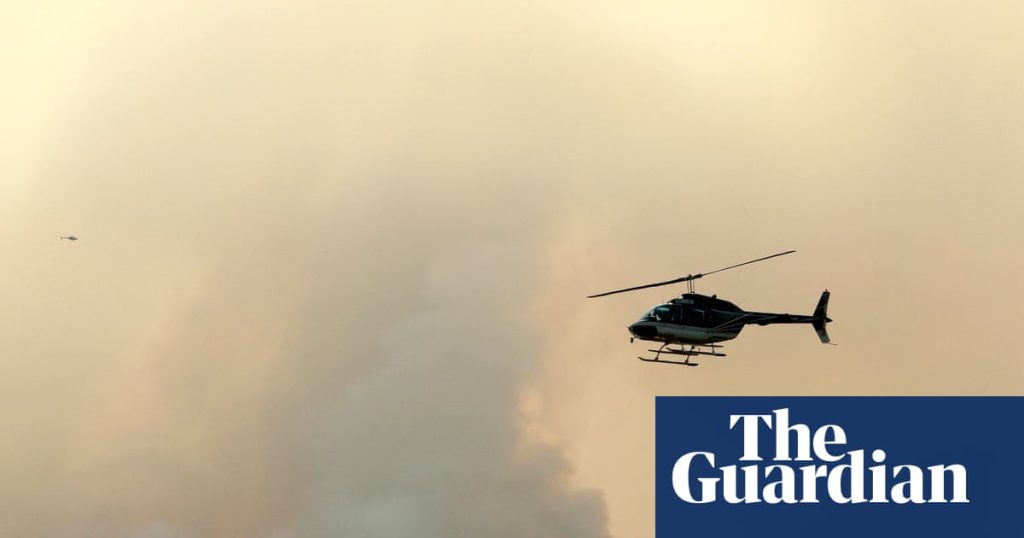Billowing smoke from hundreds of out-of-control wildfires – most of which are in the Canadian Prairies – have caused severe air quality alerts across Canada and the United States.
Detroit, Michigan, and the Canadian cities of Montreal and Toronto, recorded some of the worst air quality in the world on Monday, according to a ranking by IQAir, a Swiss air quality technology company.
More than 700 active wildfires are currently burning across Canada and about two-thirds of them are currently out-of-control, according to the Canadian Interagency Forest Fire Centre (CIFFC), a non-profit organization that is owned by government agencies.
One brush fire, in British Colombia, was reportedly caused when an osprey dropped a fish on to a power line, sparking a small blaze which was later extinguished.
But most of the current fires that are causing the poor, smoggy air quality and reduced visibility are connected to warmer-than-average temperatures, drought conditions, decreased levels of snowpack and low soil moisture, according to Natural Resources Canada. All of those factors are driven by global heating, NRC says.
Some others, including one discovered Thursday on the banks of Cameron Lake in British Columbia, were human-caused, according to officials.
Monica Vaswani, a warning preparedness meteorologist with Environment Canada, said this year is shaping up to be a “particularly bad wildfire season”.
“This is not unlike what we’ve been seeing in the last few years … unfortunately it’s kind of becoming a little bit more the norm,” she said.
Vulnerable populations, including the elderly, children and those with respiratory or heart issues have been advised to reduce time outdoors in Toronto and the surrounding municipalities. There is a risk for the general population as well and indoor activities are recommended, said Vaswani.
So far this year, 6,625,375 sq metres of land in Canada have burned due to fires, which is about 82% higher than all of 2024, which then resulted in 2,785,140 sq metres burned, according to the CIFFC.
The fires have also resulted in several evacuations across Canada in the last week. In northern Manitoba, a full evacuation order was issued for the Nisichawayasihk Cree Nation due to wildfires. More than 400 properties have been ordered to vacate as a result on the east coast of Vancouver Island – and the fire is a mere 90km north-west of Victoria, British Columbia.
The Saskatchewan village of Pinehouse, located about 500km north of the city of Saskatoon, also was under an evacuation order this week. The largest fires in the country are currently across the provinces of Saskatchewan and Manitoba, with several larger than 100,000 hectares.
The smoke from those fires continues to drift down across the Canadian border with the United States. On Monday, air quality alerts were issued for Michigan, Iowa, Minnesota, Wisconsin, parts of Nebraska and regions in Illinois and Indiana. People in the eastern states of New York, Vermont, New Hampshire and Maine are also being advised by officials to limit outdoor activity due to the wildfires.

